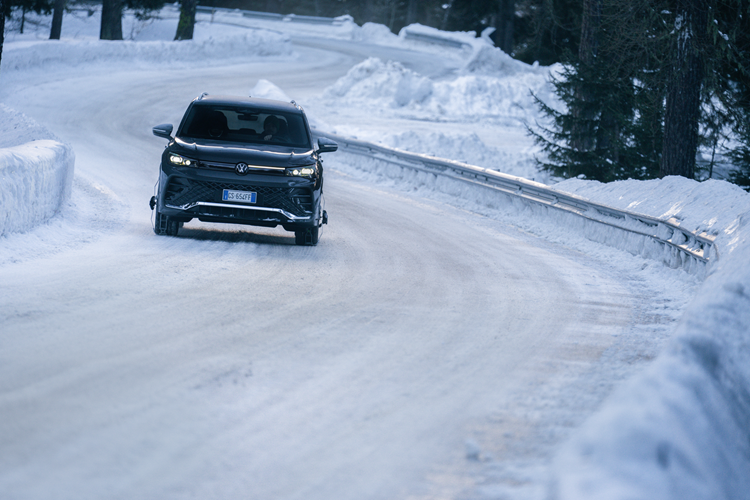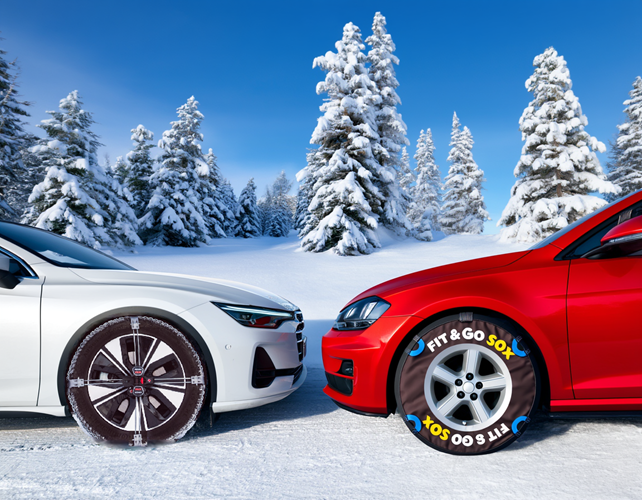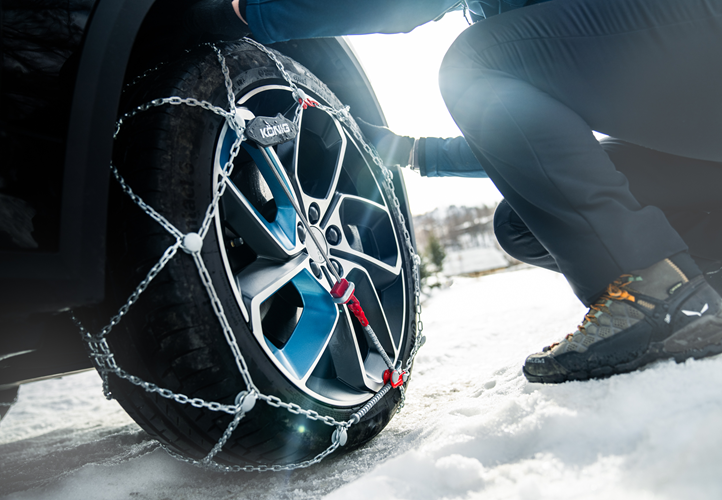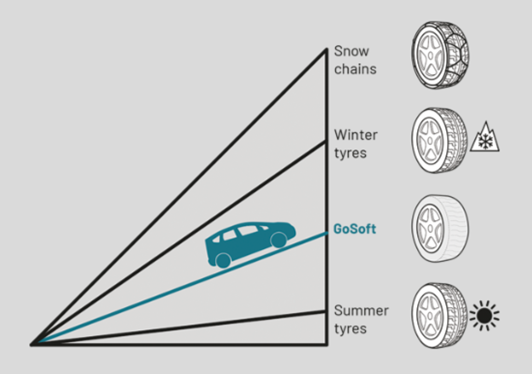


Snow Socks have grown in popularity in recent years, largely due to their being marketed as easier to fit and handle. We would agree that they are easier to handle, but not necessarily to fit. Another issue is price - although you would expect socks to be cheaper, a little research shows that budget snow chains for most passenger cars cost around the same (£40-£80). Note: premium chains and those for limited clearance or large vehicles can be significantly more.
So, here is our summary of the pro's and con's:
| |
Snow Socks
|
Snow Chains
|
| Strengths |
- Light & thin (fit limited clearance vehicles)
- Foldable (to a smaller size)
- Cheaper (sometimes)
|
- Best for traction
- Harder wearing
- Fit without moving the vehicle*1
|
| Weaknesses |
- Less traction (especially on ice)
- More prone to wear/tear
- Requires moving the vehicle to fit
|
- Can be a fiddle to fit/untangle
- Can damage chain or vehicle if incorrectly fitted
- Importance of chain suitability for vehicle*2
|
| Prices |
|
- Car Chains: Mild-Steel from £35.95; High-Tensile Steel from £62.95
- SUV/4x4 Chains: Mild-Steel from £89.95; High-Tensile Steel from £125.95
|
As they are made from textile, socks are of course lighter and they don't tend to get tangled like chains can - but chains can always be untangled, while a torn/worn sock is of little use.
In terms of meeting the legal requirements in places where chains are compulsory, socks are not always a recognised alternative. Austria for example has suspended the law which recognises socks as an acceptable traction device for driving in the mountains (*3). Elsewhere snow socks are widely accepted in Europe and they have the relevant certifications, however because they do not offer the same level of traction, we have received reports of people being delayed because they are not allowed to pass with socks alone if conditions warrant it. Our view is that if you can fit affordable chains for your vehicle, then that's the safer option. But socks are a reasonable choice if you are confident your travel plans are not too ambitious and your vehicle isn't inherently poor in snow, for example going to high altitude, or up steep slopes would be better with chains than socks, and large or heavy vehicles especially motorhomes do not tend to perform well on slopes or on snow/ice.
The larger the vehicle and longer the journey the wiser it is to choose a chain over a sock because chains give more traction and are harder wearing (i.e. more reliable), thus large commercial vehicles more often use chains. The same applies if it's icy - socks do not perform well on ice.
Relative traction of socks versus chains:
 Image credit: GoSoft Snow Socks.(*4)
Image credit: GoSoft Snow Socks.(*4)
Notes:
*1. Quick-fit chains are the norm for cars, vans and 4x4s but not for commercial vehicles (such as coaches and trucks/lorries) which more commonly do require you to drive onto the chains. Even quick-fit chains require you to move the vehicle to remove them (if the car is on top of any part of the chain you will need to drive off any parts trapped under the wheel).
*2. Chain suitability meaning size/strength for the weight/power of the vehicle, taking into account the clearance (space) around the wheels (more on this in our FAQs).
*3. As of 2023/24 Austria is now stricter on snow socks than other European countries. You can still use them on Austrian roads where chains are not required, but they are not considered legal alternatives to snow chains where (and when) the 'snow chains mandatory' signs are in effect.
*4. Image disclaimer: The graph above is intended to provide a general representation of the relative performance of the different product types and does not refer to specific models which, depending on their individual characteristics might perform differently. Key inference: chains give better traction, so can enable a vehicle to get up a steeper slope than would be possible with socks.